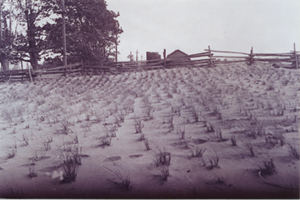Ok, so how does that work? A long time ago, cigarettes were shown to cause cancer and fried food caused heart attacks. Fortunately, most of the smoke I inhaled in college was from second hand smoke and I developed an aversion to fried food in college. Then, I entered the working world. I soon get sleep problems due to, well, showing up to work. In order to stay alert, I start to drink coffee and caffeine loaded soda. Also, with a horrible commute, there is no time for proper meals. So, my diet became horrendous. This makes my weight go up. As my weight goes up, it causes night time breathing problems among other things. Less sleep, more soda, coffee and salty snacks to keep me awake. Eventually, I have trouble breathing at night due to Apnea that I start falling asleep during the day. You get the picture.
So, I go to the doctor. He prescribes a sleep machine and some medication. I'm finally able to stay awake during the day and get sleep at night! I feel better and stay in the working world. After 5 years of this routine, I move from one employer to another as the new career norm now demands. During this time, I try to do my part. I lose some weight which allows me to only use the sleep machine as needed rather than as a full time dependency and taper down my medication. After several employers and several insurance company changes later, I find myself back with the original insurer who approved my original medication. My physical health didn't decline - but thanks to changing employers, my financial health did change. What used to be a $15 prescription became $30,$75,$15,$0,$350 then $3000 - what? After going back to Blue Cross, they decide they now won't cover what they covered before.
I naturally ask why. It turns out the medication and my sleep machine are now rather expensive items due to pharma inflation. So, the insurance company wants to look for an excuse to now deny me my continued use of both. So, they had me report my sleep logs. They finally say, "nope, sorry, you don't have enough usage hours on your sleep machine. So, we're not going to pay for a repair or replacement." They were also very careful to say they weren't denying treatment. Just payment. No matter, the effect is the same. Without replacements, I start gaining weight again which makes the condition worse. Looking back, I could probably have fought it based on denying me based on a pre-existing condition. However, now I've unfortunately demonstrated I'm not dead without these items.
Anyway, after years of not smoking, I'm considering doing it again to lose the weight (or at least arrest the gain). It's a risk assessment. An occasional cigarette saved my life during a critical period (say, driving in winter in the middle of nowhere when I HAD TO stay awake to find shelter). In the same way, smoking in leu of excessive weight gain may have the same effect on me. That is, weight loss (or at least slower weight gain) to get rid of the Apnea might be a greater benefit than the health lost to smoking. So, I'm well on my way to living the Woody Allen future as seen in the Sleeper movie. He noticed that not one person he knew eating a high fiber diet lived past 200. So, bring on the menthol butts and Mountain Dew! Thanks private insurance!
In all seriousness, what this shows to me is that in spite of Obamacare insurance reform, the a-la-carte way insurance companies can deny some medications and treatments to some people is a loophole the insurance/provider/pharma industries can fly a medivac helicopter through. Pharma can still sell it's overpriced medications to end users (some who will still pay those high prices, at least for a limited time). Hospitals can then offer treatment not approved by insurance at substantial markup (patients will either pay those extra charges or go bankrupt and generate writeoffs for the hospital). Doctors still get kickbacks from pharma companies by prescribing expensive non-covered medications that patients will still buy - at least for a limited time till they run out of money. It's all very corrupt. The very rich own medical stock, which is doing quite well. The very poor (or those working in the growing underground economy) now benefit since they get basic medical treatment but have no income that qualifies for debt retirement garnishment. Who pays for it? A shrinking middle class (gradually turning into the working poor) that pay through inflated pre-tax insurance premiums and artificially inflated medical supply prices.
One wonders how long this can go on. Probably longer than I can. Welcome to the future...



